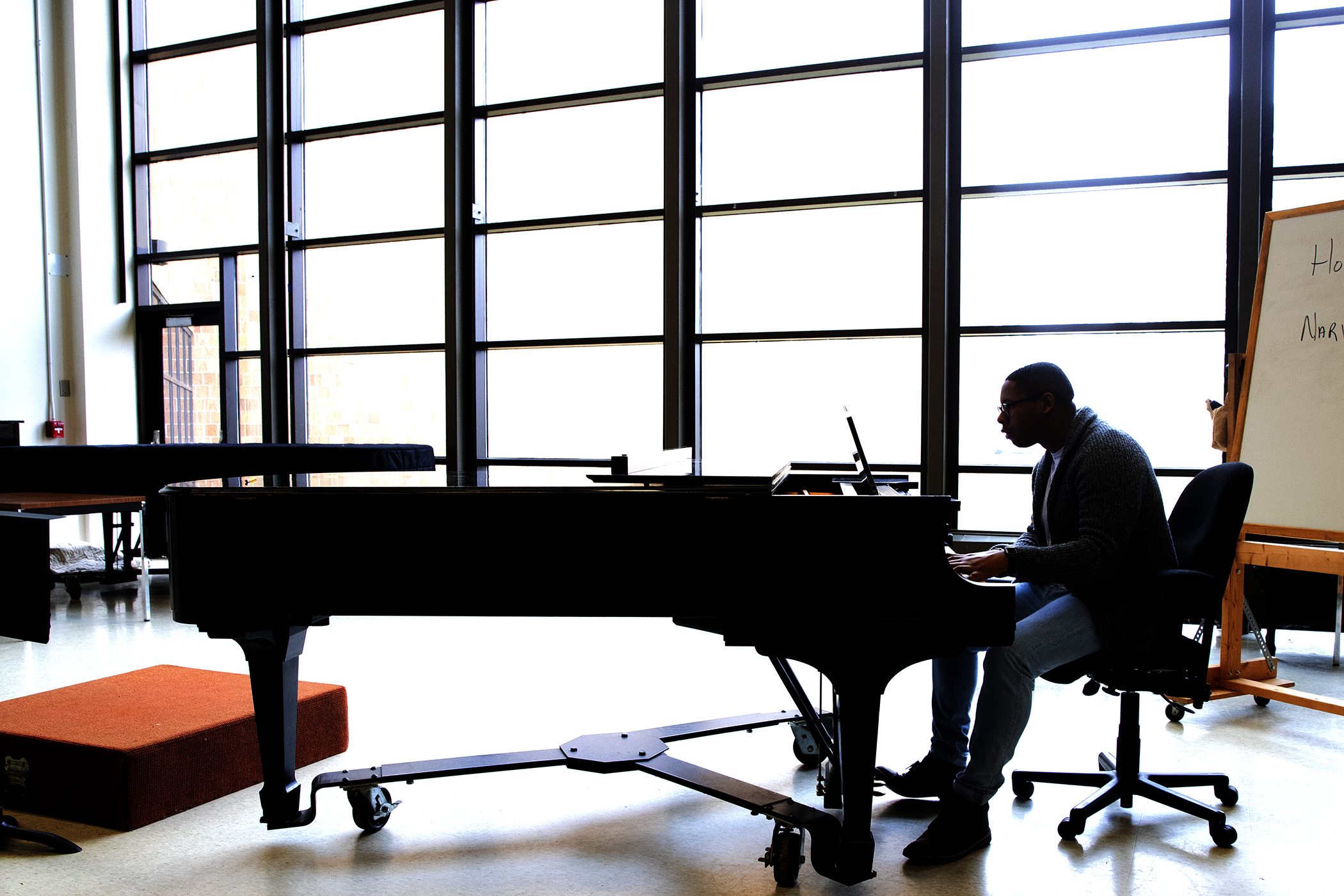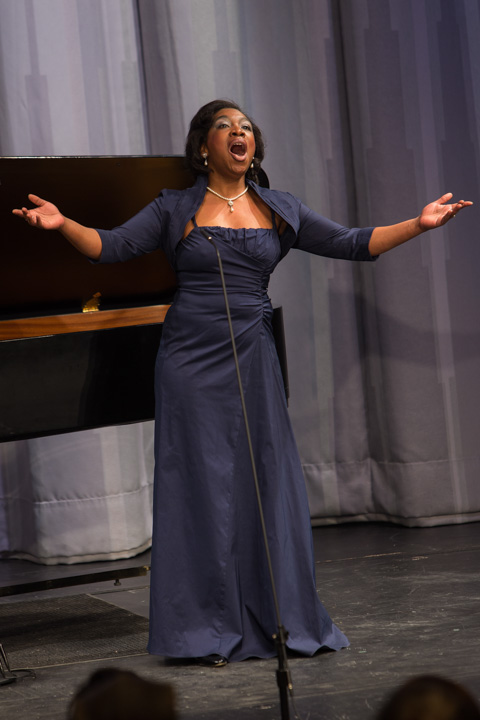Nationally recognized for student experience
The Wall Street Journal

Master of Music (M.M.)
Music Performance
Graduate students researching the best music performance colleges choose Bowling Green State University for its stellar reputation, world-renowned faculty, state-of-the-art facilities, show-stopping performance halls and thriving music community.
A master’s degree in music performance is more than just a credential. It elevates your artistry, expands your career opportunities and deepens your connection to the greater music world.
Graduate music performance degree students select from specializations including:
- Voice
- Piano
- Jazz studies
- Instrumental performance
- Instrumental specialist (concentrate in one major instrument and a minimum of two minor instruments in brass, strings or woodwinds)
Program highlights
- Esteemed educators. BGSU full-time faculty at the College of Musical Arts are celebrated musicians. Develop skills through frequent workshops, recitals, seminars, performances and weekly 1:1 lessons and master classes with studio teachers.
- Connect with prestigious performers. BGSU is fortunate to have generous donors who provide incredible opportunities for students to learn directly from high-profile guest artists and scholars. Collaborate and perform with master teachers and take professional master classes.
- Modern facilities. The Moore Musical Arts Center facilities has more than 70 practice rooms, an 822-seat concert hall, a 221-seat recital hall and state-of-the-art computer labs and Electroacoustic Studio. Many BGSU concerts incorporate real-time interactive performance systems, video art and multimedia.
- Showcase your talents. Expand your performance portfolio with more than 350+ stage opportunities annually. Each department hosts frequent recitals, chamber groups and performance groups and large and small ensembles. Two staged operas are produced each year. Awards for travel grants and cash prizes are available for competitions in concerto, chamber music, art song and more.
- Audition mentorship. Graduate music performance students are prepped and coached through professional auditions.
- Teaching opportunities. Graduate students in some specialties may teach certain undergraduate-level courses and coach small ensembles. They enter the work world as established professional performers and educators.
- NASM accreditation. The BGSU music performance degree program adheres to the stringent standards of the National Association of Schools of Music.
- Flexibility. Students have considerable flexibility within their individual program to fine-tune their career path and ensure they achieve their goals.
The College of Musical Arts presents 350+ public events annually and is a major cultural resource for the campus and northwest Ohio.
#1 public university in Ohio for career prep
The Wall Street Journal
Career opportunities
A master’s degree in music performance lays the foundation for critical skills needed in a variety of roles in the music industry – whether you aspire to perform on world stages, teach the next generation of musicians or lead ensembles.
BGSU music performance degree graduates go on to be in-demand vocal artists, conductors, musicians, producers, directors, educators and executives. Alumni secure highly-competitive spots in prominent performance art companies, film, theater, television, gaming and radio outlets and at top-rated schools.
Career paths
- Opera singer
- Recording artist
- Orchestral musician
- Conductor or director
- Instrumentalist
- Music professor
- Freelance studio performer
Quick Facts from the Bureau of Labor Statistics
Curriculum
Music performance degree graduate students will be expected to maintain a 3.0 cumulative GPA. Upon graduation, you are expected to have learned to:
- Demonstrate technical proficiency and artistry to perform as soloists and within ensembles.
- Analyze music for the enhancement of performance skills and competent teaching.
- Teach in individual and group settings.
- Interpret music literature within your performance medium.
- Engage with the outside world through musical performance.
Admission requires:
- An audition or interview
- Three letters of recommendation
- A professional resume
Auditions must be in person, with exceptions for applicants residing 250+ miles away.
The application deadline is Aug. 1 for fall and Dec. 1 for spring. Funding deadline is March 1.
Capstone project
Candidates in music performance are expected to fulfill the final project requirements by presenting a public recital or recitals.
Conducting majors may instead submit electronic videos of 30 to 45 minutes of music, consisting of repertory approved by the appropriate conducting faculty. Ensembles used by candidates will be assigned by faculty from standing College of Musical Arts ensembles or approved by faculty.
Instrumental specialist students must complete one recital on a major instrument and one chamber recital with appearance on at least two minor instruments.
Students specializing in jazz studies, piano, voice or instrumental performance will be required to perform a public recital with documented research. They must then either complete a thesis or a plan of supervised independent study encompassing all phases of preparation for the recital and their portfolio.

Sample courses
- Applied Lessons
- Alexander Technique
- Chamber Music Literature
- Score Reading and Analysis
- Opera Theater
- Repertoire and Pedagogy
#1 university in Ohio – big or small, public or private – students would choose again
The Wall Street Journal
The Master of Music in music performance is a program in the College of Musical Arts.
Music performance specializations
Jazz studies
Instrumental performance
Instrumental specialist
Accreditation
The Bowling Green College of Musical Arts is accredited by the National Association of Schools of Music (NASM) and is in good standing.
Bowling Green State University [BGSU] is accredited by the Higher Learning Commission. BGSU has been accredited by the Higher Learning Commission since 01/01/1916. The most recent reaffirmation of accreditation was received in 2022-2023, with our next reaffirmation of accreditation scheduled for 2032-2033. Questions should be directed to the Office of Institutional Effectiveness.
Request Information
Updated: 06/04/2025 04:24PM

